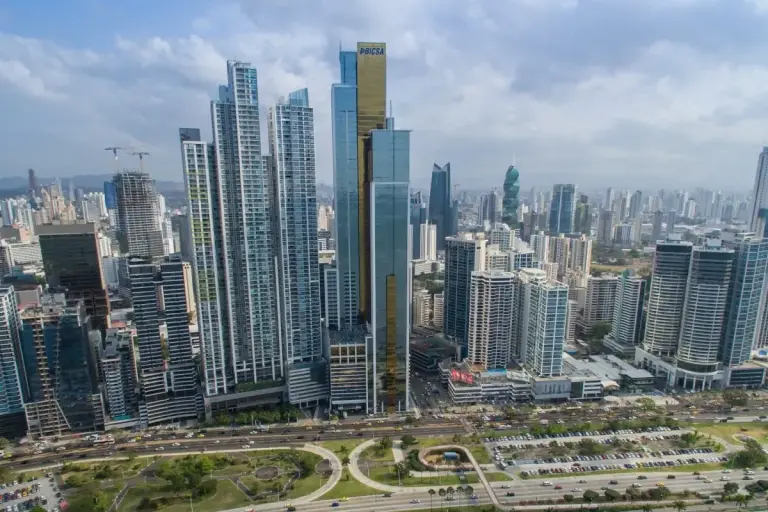Panamanian President José Raúl Mulino has launched scathing criticism against the nation’s banking sector, alleging that money stolen from the country through corruption flows freely through financial institutions. He made these statements during his weekly press conference on Thursday, November 13, 2025, highlighting a stark contrast between the strict controls on ordinary citizens and the apparent ease with which illicit funds move. The president’s remarks signal a potential confrontation with one of Panama’s most powerful economic sectors.
Mulino specifically contrasted the banking experience of the average Panamanian with that of corrupt officials moving millions. He argued that while regular citizens face intense scrutiny for minor transactions, massive suspicious operations have historically gone unchecked. This is not the first time the president has linked grand corruption cases to the formal financial system, having made similar comments in early October.
Direct Accusations from the Highest Office
President Mulino framed the issue as a fundamental threat to national security that extends beyond drug-related violence. He focused on the financial mobility that corruption and criminal activities require, emphasizing how stolen public funds integrate into the formal economy. The president left no room for ambiguity in his assessment of the banking sector’s role in this process.
“To the narcos they occasionally find a stash of cash, but have they ever found a stash full of money from the funds stolen from this country through acts of corruption? No. It all circulated through our banking system. The Comptroller has said it. All that money circulated through Panamanian banks,” [Translated from Spanish] Mulino stated emphatically.
He provided a personal anecdote to illustrate the perceived imbalance in the system’s controls. Mulino described the extensive documentation he had to provide to deposit a $1,350 check from selling a bull, while claiming others moved $38 million without question. This vivid comparison underscored his central argument that the system burdens the innocent while failing to catch major offenders engaged in money laundering.
Comptroller General Corroborates Claims
The president’s accusations found support from another high-level official, Comptroller General Anel Flores. In an appearance on the program “180 Minutos,” hosted by journalist Álvaro Alvarado, Flores also targeted the previous administration of Laurentino Cortizo and the banking sector. The comptroller alleged that officials from the past government were moving hidden fortunes through the financial system using specific mechanisms.
Flores identified prepaid cards and leasing schemes as some of the tools being used to move illicit wealth. His statements lend significant weight to Mulino’s claims, suggesting a coordinated effort from the executive branch and the comptroller’s office to address this issue. The specific mention of financial instruments indicates authorities are tracking sophisticated methods used to conceal the movement of corrupt funds.
This dual-front criticism from both the presidency and the comptroller’s office represents an unprecedented challenge to the Panama banking system. It places financial institutions squarely in the spotlight regarding their compliance responsibilities and their effectiveness in detecting suspicious transactions, especially those involving politically exposed persons.
Banking Association Defends Sector’s Record
Carlos Berguido, the executive president of the Panama Banking Association (ABP), responded directly to the president’s allegations. While acknowledging the problem, Berguido defended the sector, stating that banks are often victims of abuse rather than accomplices. He argued that financial institutions do everything possible to prevent illicit funds from entering the system but face inherent limitations.
“It is inevitable that those who launder capital or steal money from the public treasury end up putting that money in the banks,” [Translated from Spanish] Berguido conceded. He was quick to add that the banks “do the impossible to prevent it.” [Translated from Spanish]
Berguido explained that banking controls, while rigorous, are not infallible. He made a crucial distinction about the role of financial institutions, noting they can suspect unusual activity but lack the legal authority of a judge. This perspective frames the challenge as a systemic issue requiring collaboration between the public and private sectors rather than placing blame solely on banks.
The banking executive also addressed the delicate situation of Politically Exposed Persons (PEPs). He confirmed that these individuals already undergo much stricter verification processes, which often leads to complaints from the officials themselves. Berguido warned that completely excluding PEPs from the financial system would be a national catastrophe, as no one would want to hold public office under those conditions.
A Call for Collaboration and Stricter Enforcement
President Mulino announced his intention to meet soon with financial sector representatives. He framed this upcoming dialogue as critical to national security, suggesting that a lack of control and cooperation could destabilize the country. His warning that “the country cannot become unmanageable in terms of security because some act and others let them act” indicates he views this as a pressing threat.
The banking association, for its part, points to its own record of reporting suspicious activities. Berguido claimed that most major corruption or money laundering scandals that become public begin with reports from banks’ own compliance officers. This counterargument suggests the system is functioning as intended, catching criminals after the fact, even if it cannot prevent every illicit transaction initially.
This developing situation places Panama’s financial sector at a crossroads. The country has worked for years to improve its international standing on financial transparency and combat its reputation as a secrecy jurisdiction. The public accusations from the president and comptroller, followed by the banking association’s defense, reveal deep tensions over how to balance a robust financial center with effective anti-corruption safeguards. The outcome of the promised meeting between Mulino and bank executives will be closely watched by international financial regulators and investors alike.



